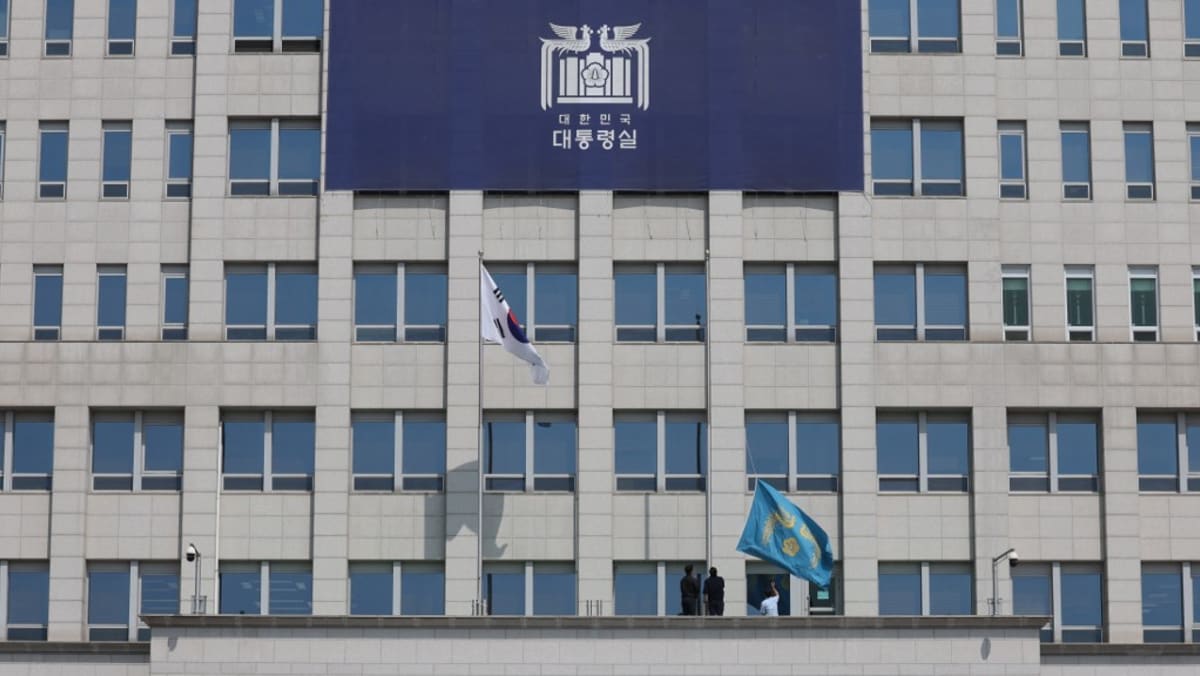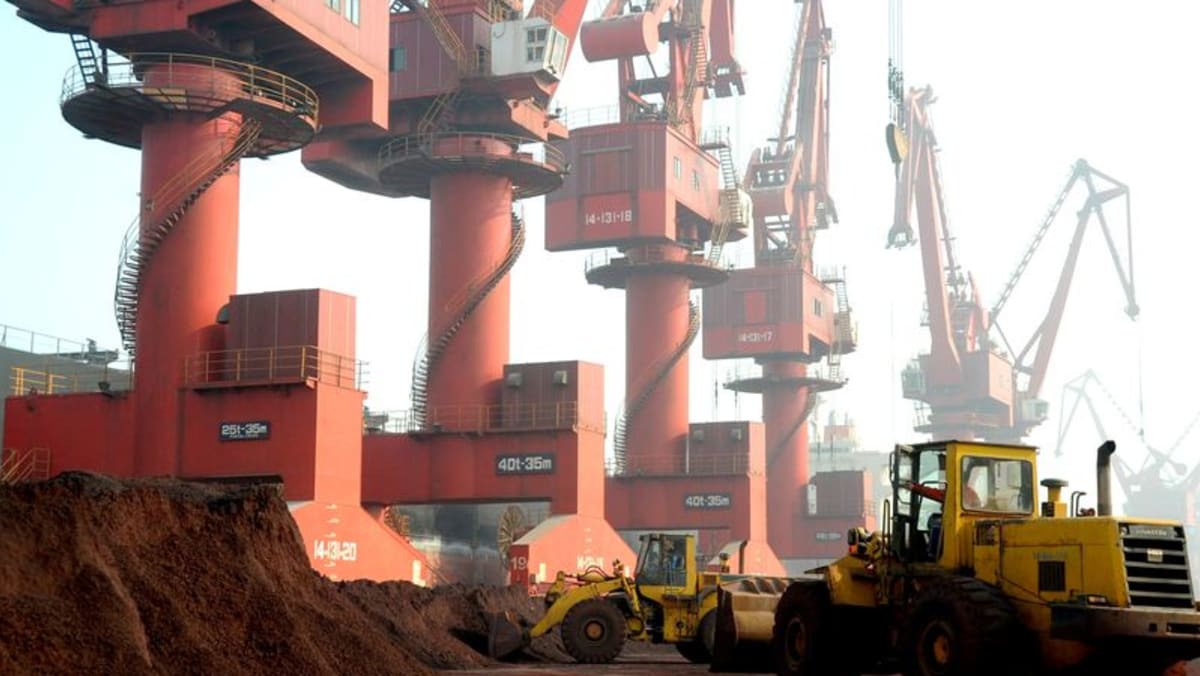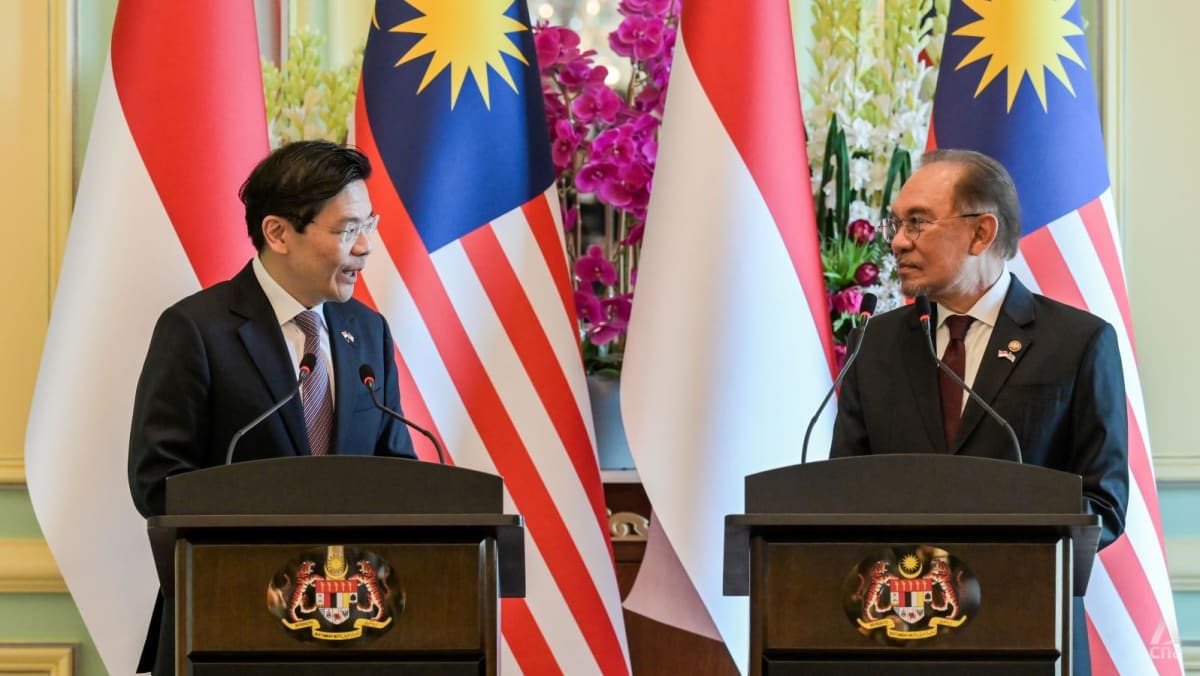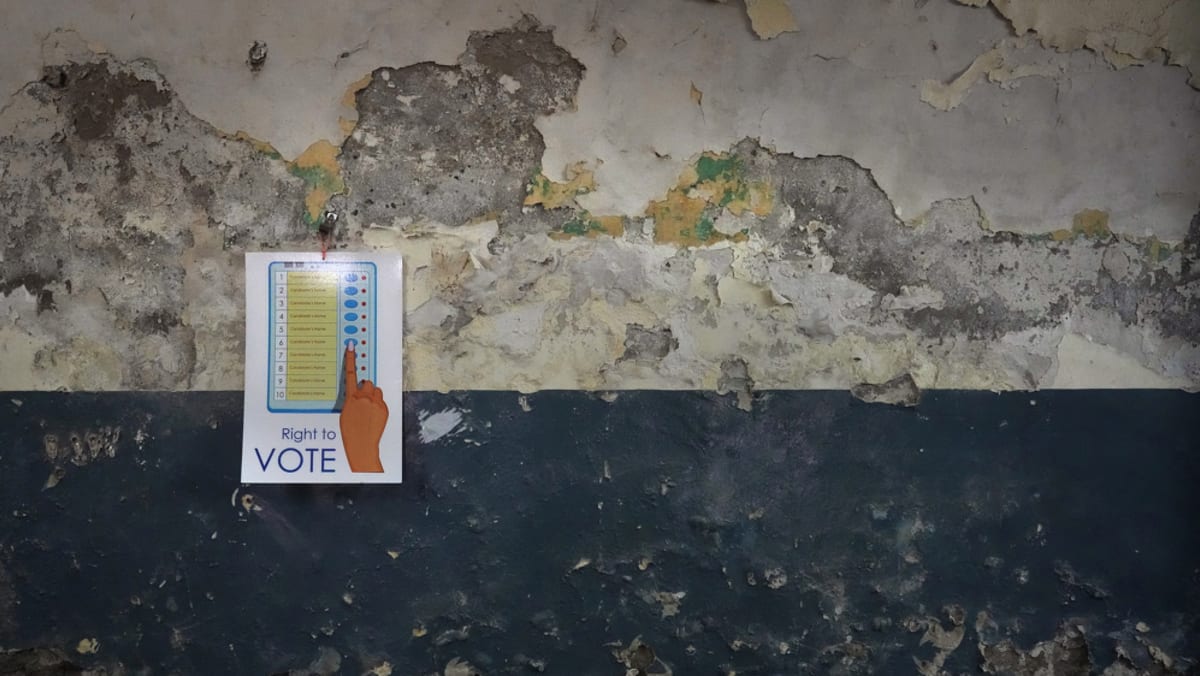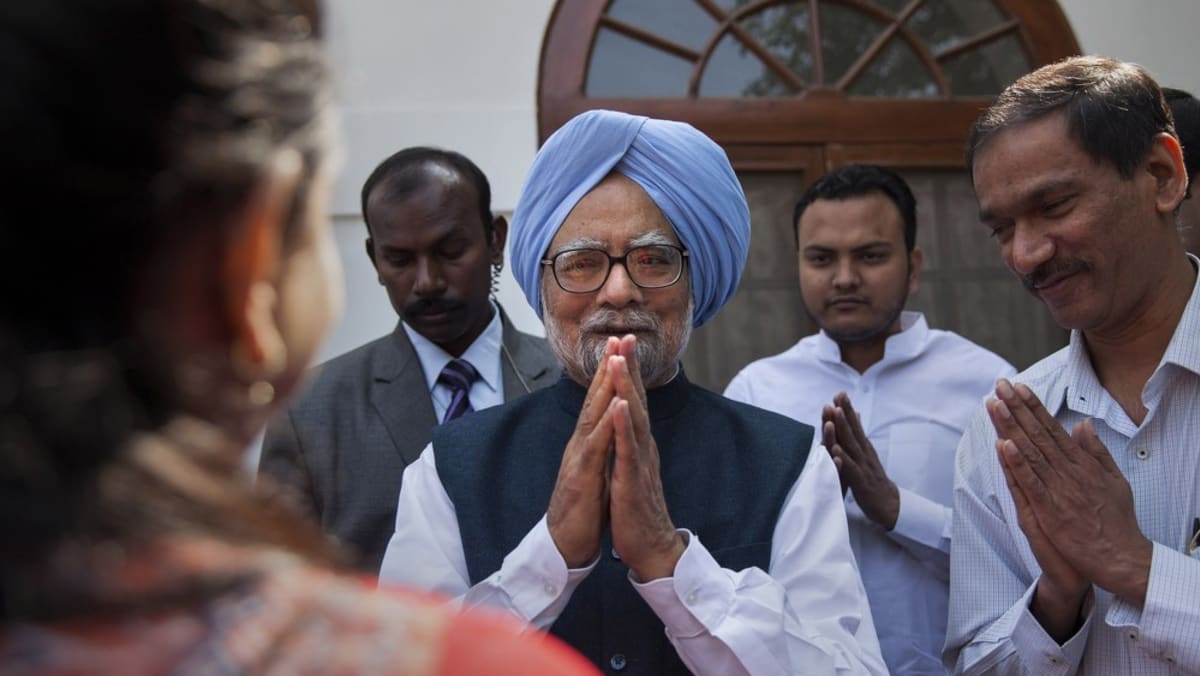Backed by loyalists and tech billionaires, Donald Trump swept into office with a blizzard of executive orders to reshape American politics.
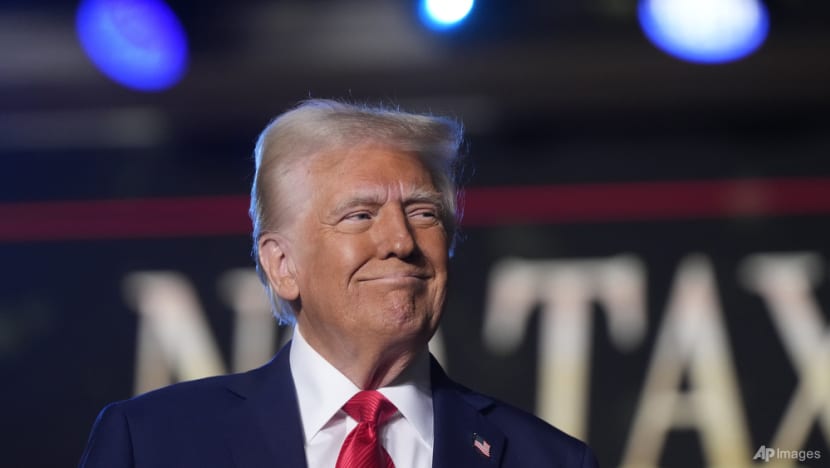
President Donald Trump arrives to speak about the economy during an event at the Circa Resort and Casino in Las Vegas, Saturday, Jan. 25, 2025. (AP Photo/Mark Schiefelbein)
New: You can now listen to articles.

This audio is generated by an AI tool.
It has been a busy first week for United States President Donald Trump.
Since taking office last Monday (Jan 20), the 78-year-old hit the ground running with a signing spree of executive orders as he moved to make good on many of his campaign promises.
With dizzying speed, he reversed policies from former president Joe Biden's administration and ordered the US’ withdrawal from the Paris climate accord as well as the World Health Organization (WHO).
Among his boldest moves were renaming the Gulf of Mexico to the Gulf of America, demanding to buy Greenland and threatening to take back the Panama Canal.
Domestically, he ended diversity, equity, and inclusion programmes, revoked an electric vehicle mandate that encourages the switch to cleaner vehicles, and pardoned supporters in connection with the attack on the US Capitol on Jan 6, 2021.
Observers said Trump has been far more emboldened and organised in his return to the White House, backed by a team of loyalists and flanked by tech billionaires.
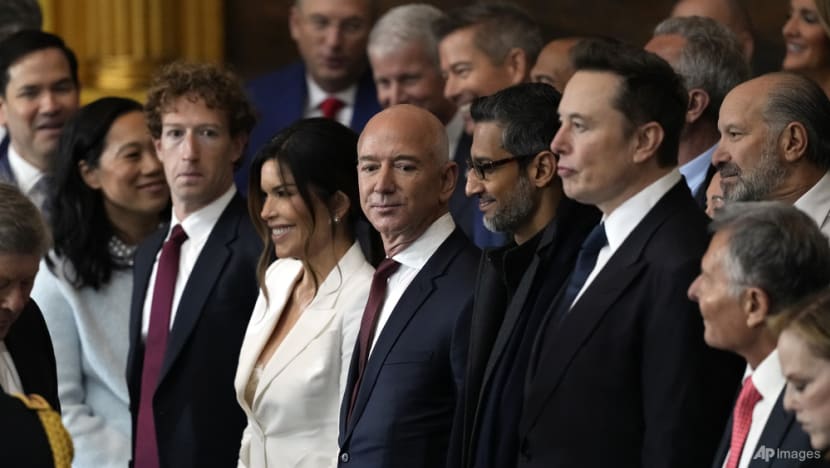 Guests including tech honchos Mark Zuckerberg, Jeff Bezos, Sundar Pichai and Elon Musk attend the presidential inauguration of Donald Trump in the Rotunda of the US Capitol in Washington, Jan 20, 2025. (Photo: AP/Julia Demaree Nikhinson/Pool)
Guests including tech honchos Mark Zuckerberg, Jeff Bezos, Sundar Pichai and Elon Musk attend the presidential inauguration of Donald Trump in the Rotunda of the US Capitol in Washington, Jan 20, 2025. (Photo: AP/Julia Demaree Nikhinson/Pool)
Rick Mullaney, executive director of Jacksonville University’s Public Policy Institute, said Trump’s past week was in stark contrast to his first term in office, when he won a surprise victory and had much less fervent support.
“In 2017, it was a very different Trump. He was opposed by Silicon Valley and the media. He did one executive order on his first day,” he told CNA938.
“This (time, it’s) a Trump who's more confident, a Trump who has won the popular vote for the first time in 20 years for a Republican. And unlike eight years ago, this is a Trump (supported by) Silicon Valley … the resistance is low and he's got strong support.
“It capped, really, the greatest political comeback in the history of the country.”
IMMIGRATION POLICIES
One of Trump’s first orders of business was to crack down on immigration.
He signed executive orders outlining a sweeping agenda, from deploying troops to the southern border, to arresting undocumented migrants.
He has also threatened to impose blanket tariffs on Canada and Mexico on what he views as insufficient border security and their failure to stop migrants from illegally crossing into the US.
While Trump intends to deport all foreigners living in the country without permission, experts said the ambition is expected to fall short as it will be difficult to execute.
“So, in terms of feasibility, he's sending a very strong message with a shift in policy. But it's limited as to what he can do unless he has the funding, and that's going to require a congressional appropriation,” Mullaney said.
There are about 11 million unauthorised migrants in the nation, according to Pew Research Center estimates based on the 2022 American Community Survey, the most recent year available.
Those with violent criminal background and convictions will be targeted first, followed by those with court orders for deportations.
Mullaney said Trump is unlikely to face much pushback on these groups, as there is general bipartisan support for security on the southern border as well as the deportation of those who have committed crimes.
However, Trump will likely experience difficulties when it comes to the so-called Dreamers – undocumented immigrants who arrived in the US as children and have lived in America for most of their lives.
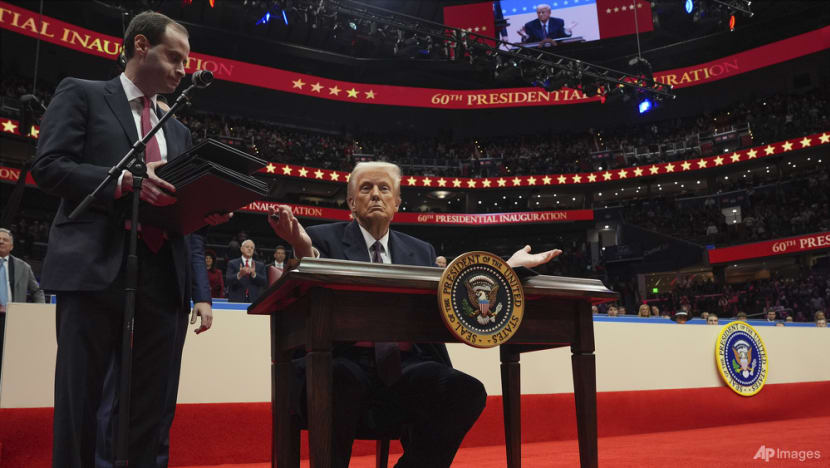 US President Donald Trump signs executive orders during his presidential inauguration parade event at Capital One Arena in Washington, Jan 20, 2025, as White House staff secretary Will Scharf watches. (Photo: AP/Evan Vucci)
US President Donald Trump signs executive orders during his presidential inauguration parade event at Capital One Arena in Washington, Jan 20, 2025, as White House staff secretary Will Scharf watches. (Photo: AP/Evan Vucci)
Trump has also issued an executive order to eliminate birthright citizenship, which grants anyone born in the country American citizenship. It was, however, temporarily blocked by a federal judge last Thursday after 22 states mounted a legal challenge.
Mullaney said ending birthright citizenship will be an uphill battle for Trump, as the move directly challenges the 14th Amendment.
“Trump can't undo the Constitution through an executive order. (But) he may be feeling that whether the Supreme Court affirms or not, he's going to get a political win out of it,” he said.
While Republicans control both chambers of the US Congress, which makes it easier for Trump to enact his agenda and reshape American politics, Mullaney said the margin is still narrow enough and could thawrt some of his more ambitious proposals.
GAZA CEASEFIRE
Another issue weighing heavy on Trump's agenda is the fragile truce in Gaza following an agreement between Israel and Hamas after 15 months of war.
After claiming credit for the ceasefire deal, which came into effect shortly before his inauguration, Trump suggested last Saturday to “clean out” the war-devastated Gaza Strip by resettling Palestinians in neighbouring Egypt and Jordan.
His proposal was met with refusal from the two US allies – which are already hosting significant numbers of Palestinian refugees, and from Palestinians themselves who fear Israel would not allow them to return home.
“Ethnic cleansing, which is what this would be, is a serious war crime,” said politics professor Stephen Zunes.
Trump’s move was in contrast to Biden, who, despite facing criticism for his support of Israel, believed in a rules-based international legal order, said the director of Middle Eastern Studies at the University of San Francisco.
“Trump's dismissal of these long-standing international legal principles is rather disturbing, particularly that he is now the president of the most powerful country in the world,” Zunes told CNA’s Asia Now.
He said the only viable, long term solution will be equality between Palestinians and Israelis, either in a two-state solution or a single binational state with guaranteed rights for both groups.
“There can never be a real solution that does not recognise this. Ultimately, Israeli security and Palestinian rights are not mutually exclusive - they're mutually dependent upon the other, so it's critical that we get to the roots of it,” he said.
As Trump settles into his second term, analysts cautioned the newly-inaugurated president remains unpredictable - at least compared to previous administrations - and it will become clearer in the months ahead the impact of his agenda.



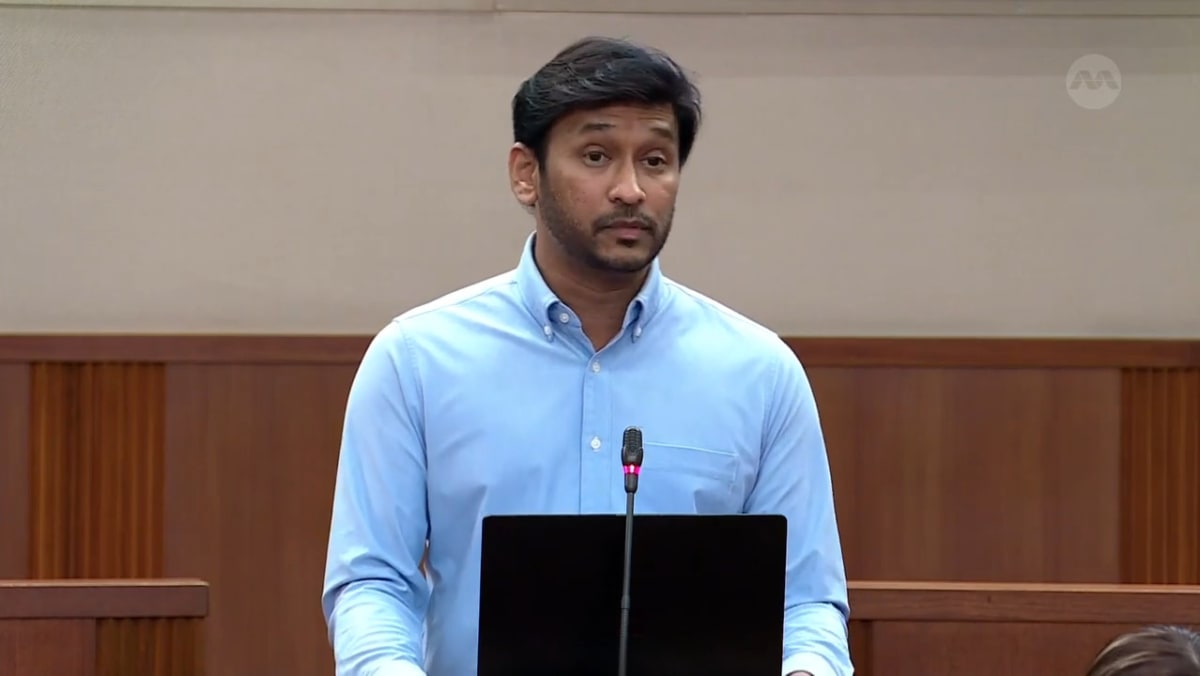

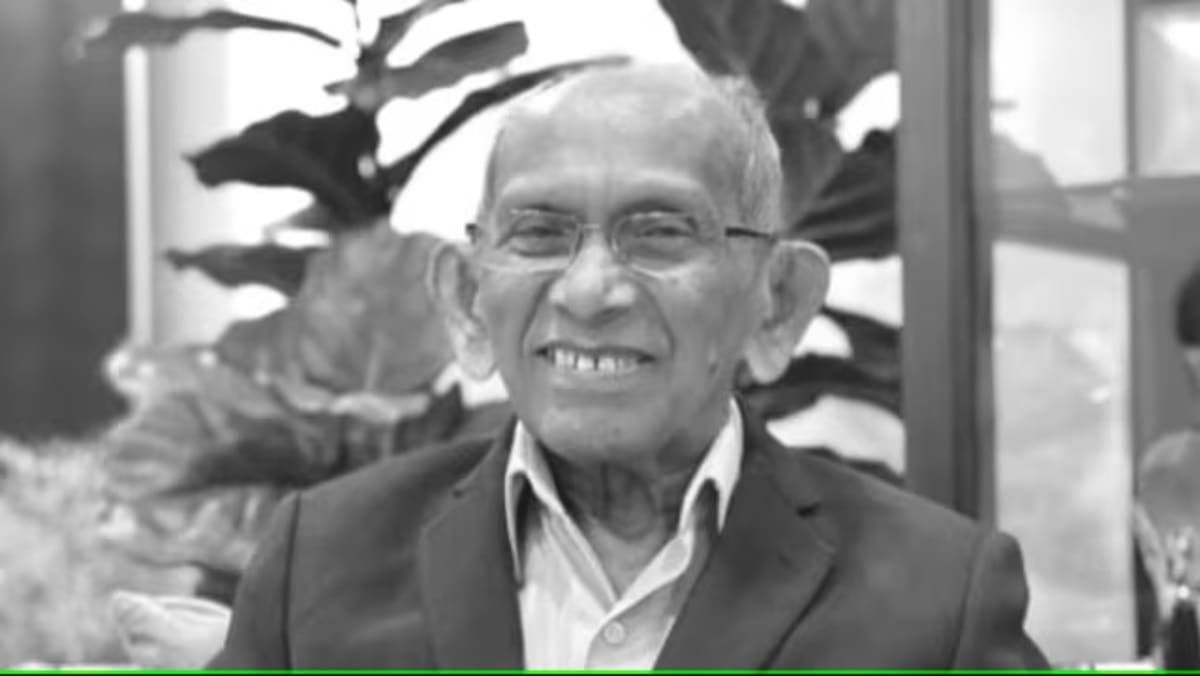



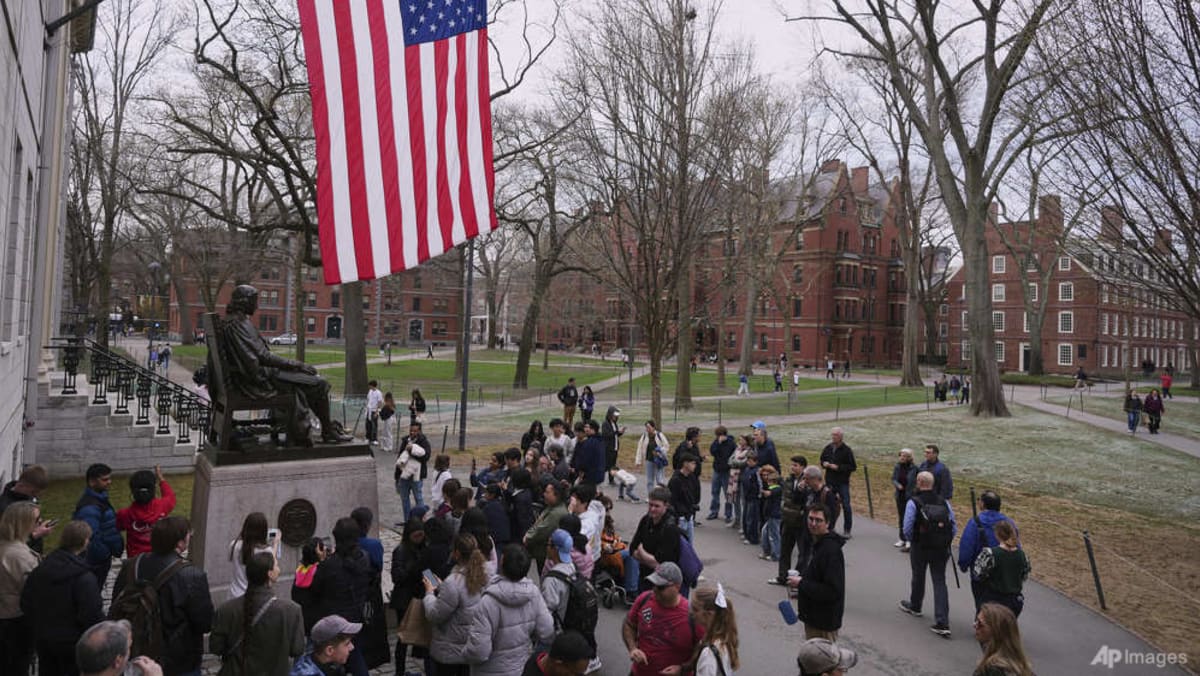
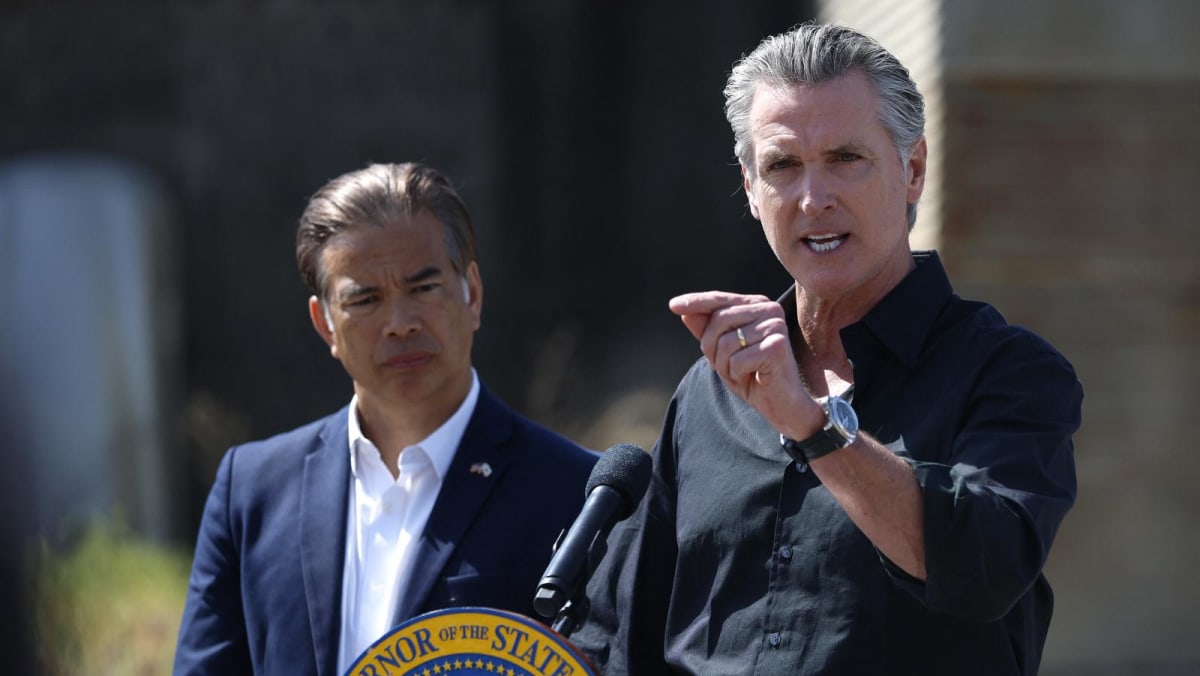

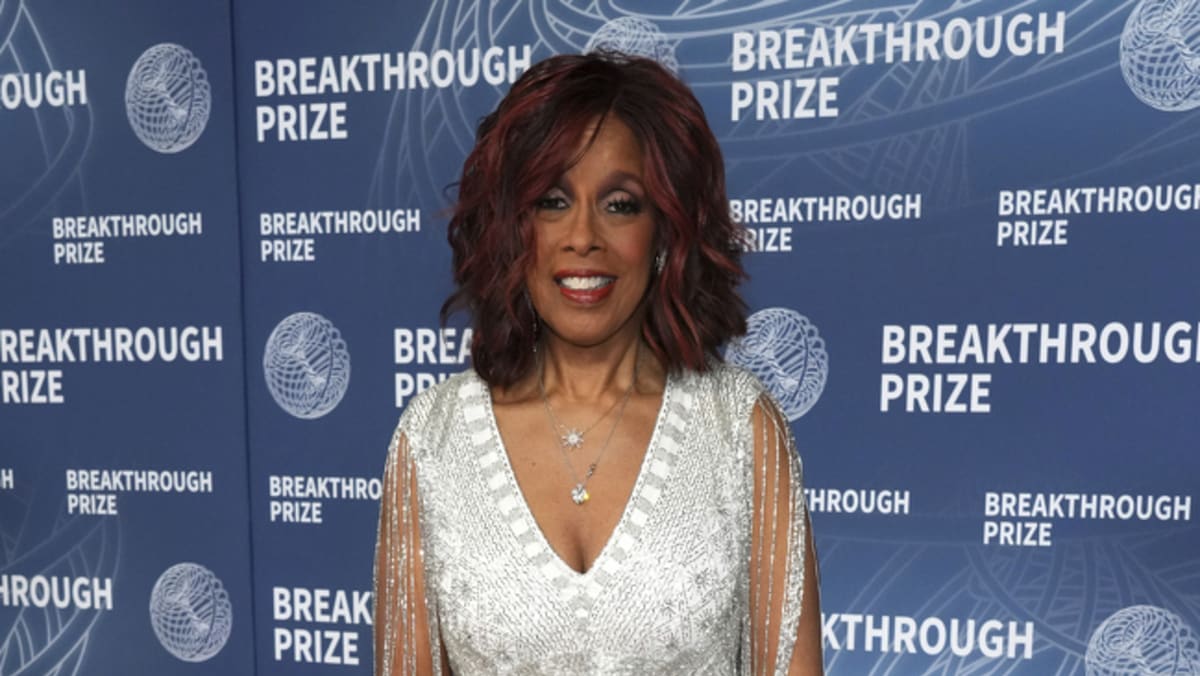
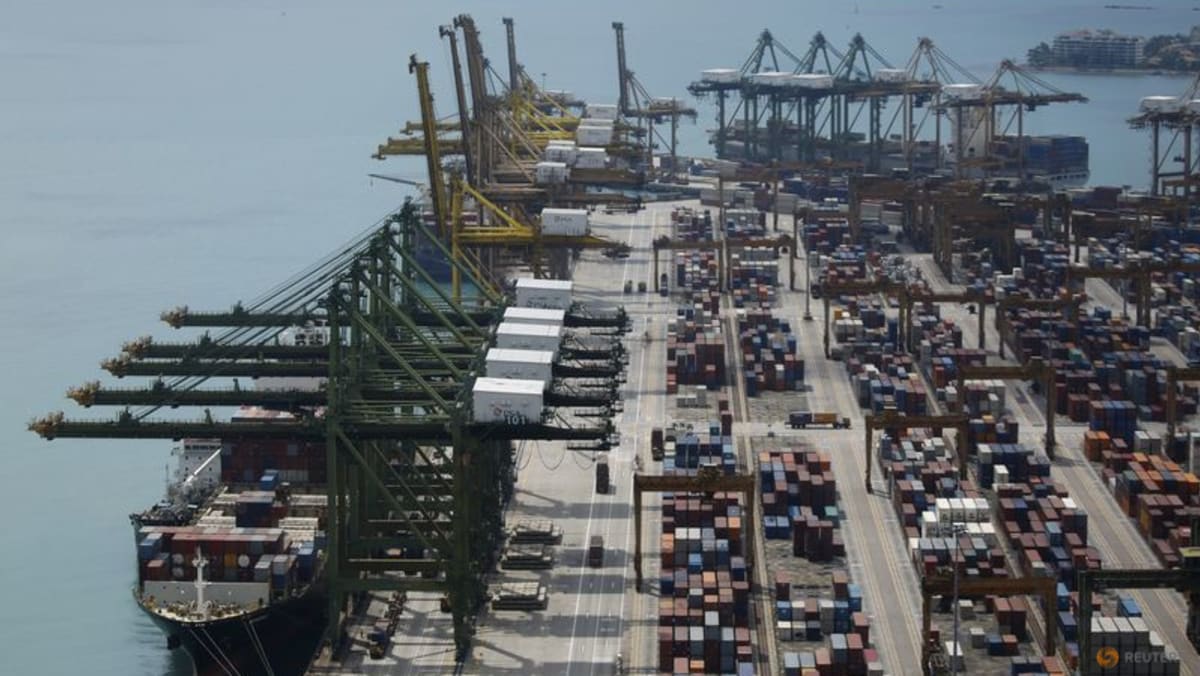

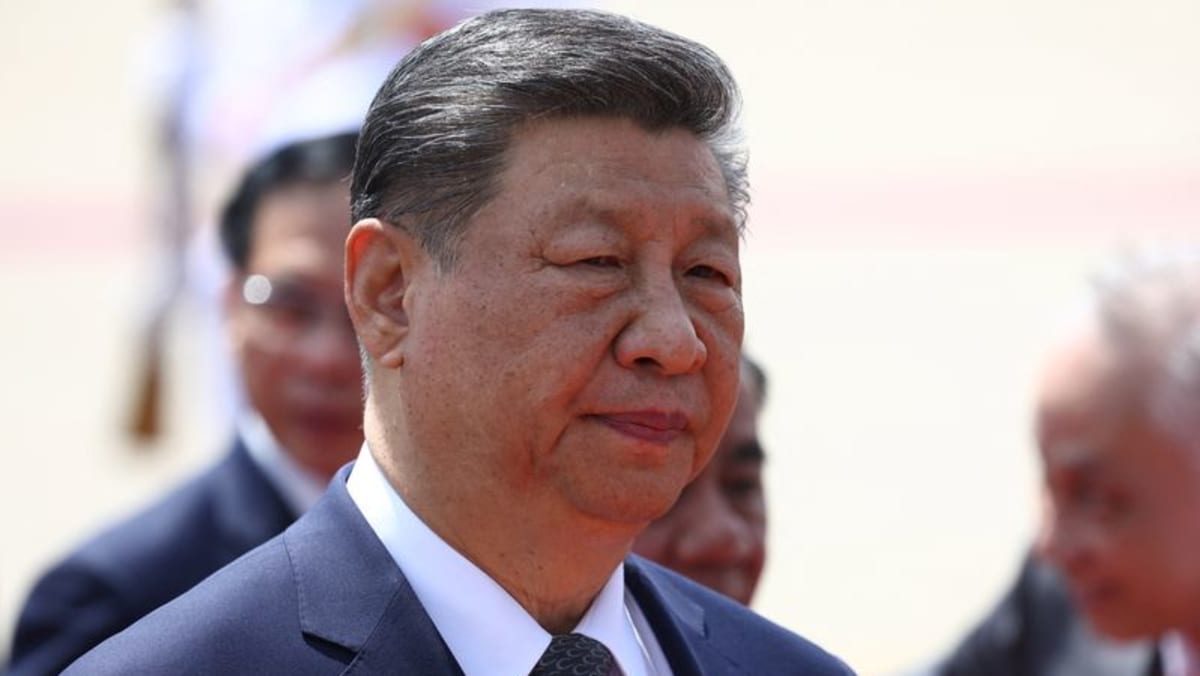
.png?itok=erLSagvf)


